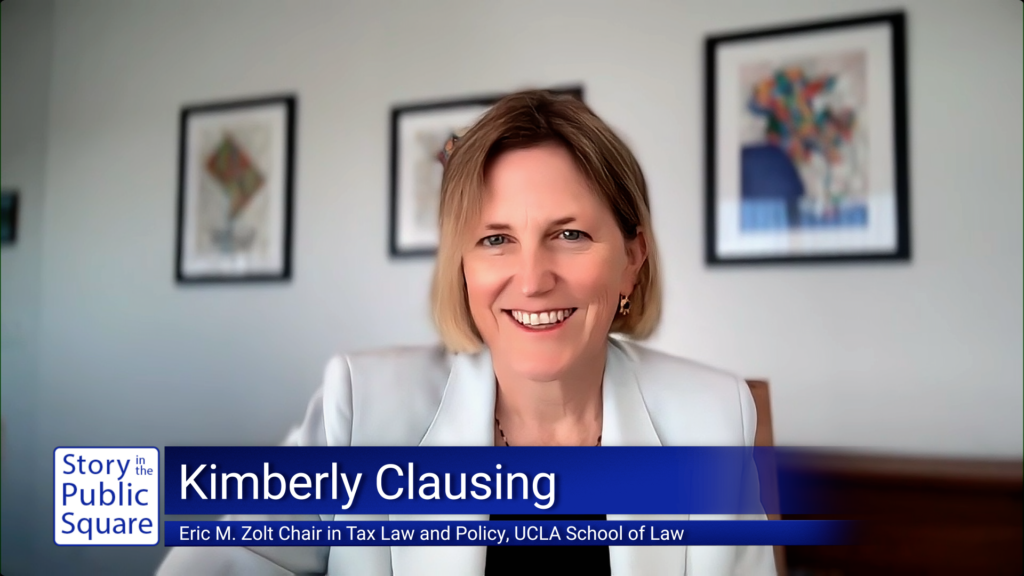A Closer Look at Trump Administration Tariffs with Kimberly Clausing
Air Dates: May 5 – 11, 2025
Throughout the campaign of 2024, President Donald Trump promised to use tariffs to reset America’s global trade relationships, revitalize American manufacturing, and increase government revenues—and in the first months of his second administration, the president has used tariffs and the threat of tariffs to drive concessions even while raising antagonism and roiling markets. Kimberly Clausing helps us distinguish between the rhetoric and the reality of these tariffs.
Clausing is an expert on the taxation of multinational firms. She served as the Deputy Assistant Secretary for Tax Analysis in the U.S. Department of the Treasury, serving as the lead economist in the Office of Tax Policy during the Biden administration. She is a nonresident senior fellow at the Peterson Institute for International Economics, a member of the Council on Foreign Relations, and a research associate at the National Bureau of Economic Research. Clausing has worked on economic policy research with the International Monetary Fund, the Hamilton Project, the Brookings Institution, the Tax Policy Center, and the Center for American Progress. She has testified before the House Ways and Means Committee, the Senate Committee on Finance, the Senate Committee on the Budget, and the Joint Economic Committee. Her research examines how government decisions and corporate behavior interplay in the global economy. She has published numerous articles on the taxation of multinational firms, and she is the author of “Open: The Progressive Case for Free Trade, Immigration, and Global Capital.”
On this week’s episode of “Story in the Public Square,” Clausing reflects on the first Trump administration and how tariffs put in place during his first term compare to the most-recent ones. She said, “those tariffs were already much smaller than the ones he’s enacted so far, and certainly smaller than the ones he is planning.” Clausing added that research done on the Trump administration’s tariffs on China in his first term showed the consumer was the party most affected. Clausing says that while there are several reasons a president maychoose to enact tariffs, the Trump administration’s recent tariffs are showing something else. “He wants to raise revenue with this. He wants to respond to perceived harms that have been done to the United States,” she said. “Now, these perceptions may not really jibe with reality, but I think it’s a much broader use of tariffs than we’ve seen in, really, any rich country in modern history.”
“Story in the Public Square” broadcasts each week on public television stations across the United States. In Rhode Island and southeastern New England, the show is broadcast on Rhode Island PBS on Sundays at 11:00 a.m. and is rebroadcast Thursdays at 7:30 p.m. Check your local public television listings for air times near you! An audio version of the program airs Saturdays at 8:30 a.m. and 5:30 p.m. ET, Sundays at 2:30 a.m. and 9:30 p.m. and Mondays at 4:30 a.m. ET on SiriusXM’s popular P.O.T.U.S. (Politics of the United States), channel 124. “Story in the Public Square” is a project of the Pell Center at Salve Regina University. The initiative aims to study, celebrate and tell stories that matter.

